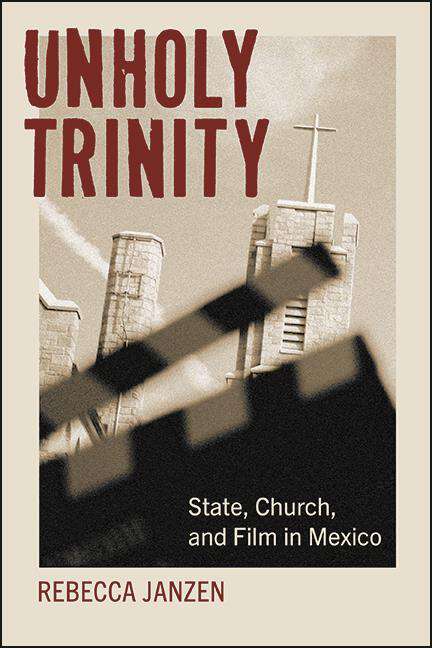Unholy Trinity: State, Church, and Film in Mexico (SUNY series in Latin American Cinema)
By:
Sign Up Now!
Already a Member? Log In
You must be logged into Bookshare to access this title.
Learn about membership options,
or view our freely available titles.
- Synopsis
- Rebecca Janzen brings a unique applied understanding of religion to bear on analysis of Mexican cinema from the Golden Age of the 1930s onward. Unholy Trinity first examines canonical films like Emilio Fernández's María Candelaria and Río Escondido that mythologize Mexico's past, suggesting that religious imagery and symbols are used to negotiate the place of religion in a modernizing society. It next studies films of the 1970s, which use motifs of corruption and illicit sexuality to critique both church and state. Finally, an examination of films from the 1990s and 2000s, including Guita Schyfter's Novia que te vea, a film that portrays Mexico City's Ashkenazi and Sephardic Jewish communities in the twentieth century, and Carlos Carrera's controversial 2002 film El crimen del padre Amaro, argues that religious imagery—related to the Catholic Church, people's interpretations of Catholicism, and representations of Jewish communities in Mexico—allows the films to critically engage with Mexican politics, identity, and social issues.
- Copyright:
- 2021
Book Details
- Book Quality:
- Publisher Quality
- Book Size:
- 186 Pages
- ISBN-13:
- 9781438485324
- Related ISBNs:
- 9781438485300, 9781438485317
- Publisher:
- State University of New York Press
- Date of Addition:
- 08/25/23
- Copyrighted By:
- State University of New York
- Adult content:
- No
- Language:
- English
- Has Image Descriptions:
- No
- Categories:
- Entertainment, Nonfiction, Art and Architecture
- Submitted By:
- Bookshare Staff
- Usage Restrictions:
- This is a copyrighted book.
